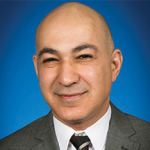In a nutshell
- While Iraq has experienced greater political inclusion over the last two decades, economic inclusion remains elusive.
- Our analysis indicates that 1) Political inclusion cannot be relied on to achieve economic inclusion, and 2) Iraq’s post-2003 political arrangement have on balance worked to restrict economic inclusion.
- Government spending and transfers of oil income have not been widely dispersed but concentrated among public sector workers and well-connected contractors.
- Because of the strong incentives for official corruption, it is hard to adequately counter corruption through mostly legal and regulatory reforms or economic liberalization.
- Iraqi labor markets are highly distorted and hence unable to provide jobs to enough people, let alone reduce poverty.
- We propose a targeted basic income scheme to more equitably distribute Iraq’s oil revenues.

Research Fellows
Bassam Yousif
Professor of Economics, Indiana State University

Authors
Omar El-Joumayle
Independent Scholar


